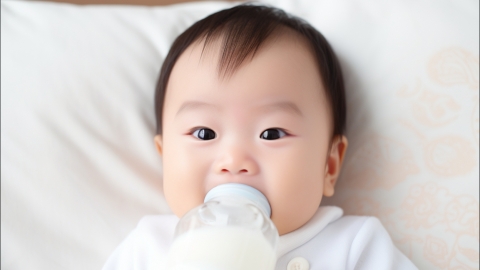How long after bathing can a baby have milk?
Generally, infants can have milk 20-30 minutes after a bath. Detailed analysis is as follows:

If the infant is in a good mental state after the bath, without crying, signs of spitting up, the bathing process went smoothly, the duration was short, and there is no obvious fatigue or discomfort, the infant can have milk after waiting 20 minutes. At this point, the infant's body has mostly calmed down, breathing and heart rate have stabilized, and gastrointestinal function is gradually returning to normal. A short waiting period can avoid gastrointestinal discomfort caused by eating immediately after the bath while meeting the infant's immediate feeding needs.
If the infant shows mild irritability, slightly faster breathing after the bath, or if the bath was lengthy and physically demanding, it is recommended to wait 30 minutes before feeding. A long bath or significant physical activity may put the infant's body in a mild state of stress, with breathing and blood circulation not yet fully stabilized and slower gastrointestinal motility. Extending the waiting time allows the infant's body to fully recover and reduces the risk of discomforts such as spitting up and bloating.
During the waiting period, caregivers can hold the infant upright and gently pat their back to help soothe them. Before feeding, observe the infant's condition first; if the infant is still crying or refusing to feed, the waiting time can be appropriately extended. During feeding, control the speed carefully to avoid rapid feeding which may cause choking. After feeding, promptly hold the infant upright and burp them to expel air from the stomach. If the infant frequently spits up after bathing, check whether it is due to insufficient waiting time or other causes, and consult a doctor if necessary.




